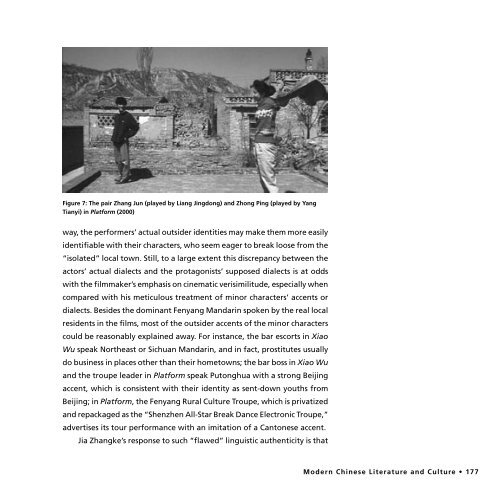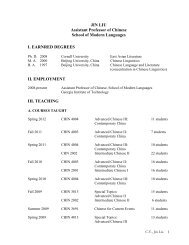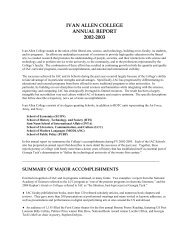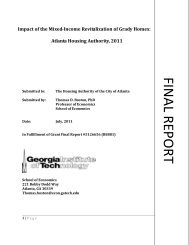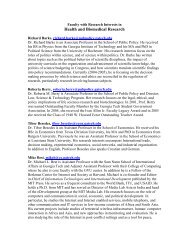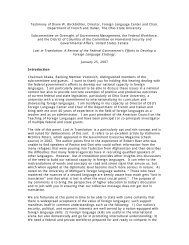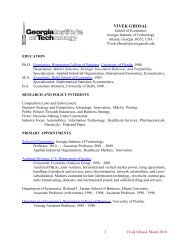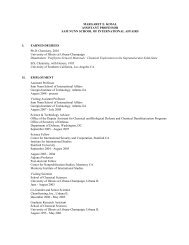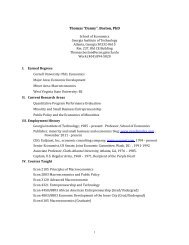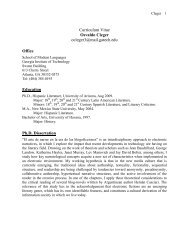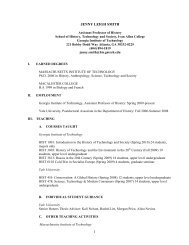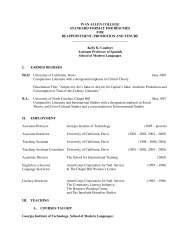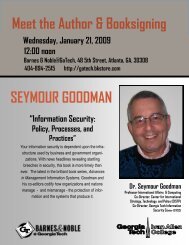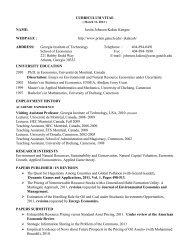Read this paper
Read this paper
Read this paper
You also want an ePaper? Increase the reach of your titles
YUMPU automatically turns print PDFs into web optimized ePapers that Google loves.
Figure 7: The pair Zhang Jun (played by Liang Jingdong) and Zhong Ping (played by Yang<br />
Tianyi) in Platform (2000)<br />
way, the performers’ actual outsider identities may make them more easily<br />
identifiable with their characters, who seem eager to break loose from the<br />
“isolated” local town. Still, to a large extent <strong>this</strong> discrepancy between the<br />
actors’ actual dialects and the protagonists’ supposed dialects is at odds<br />
with the filmmaker’s emphasis on cinematic verisimilitude, especially when<br />
compared with his meticulous treatment of minor characters’ accents or<br />
dialects. Besides the dominant Fenyang Mandarin spoken by the real local<br />
residents in the films, most of the outsider accents of the minor characters<br />
could be reasonably explained away. For instance, the bar escorts in Xiao<br />
Wu speak Northeast or Sichuan Mandarin, and in fact, prostitutes usually<br />
do business in places other than their hometowns; the bar boss in Xiao Wu<br />
and the troupe leader in Platform speak Putonghua with a strong Beijing<br />
accent, which is consistent with their identity as sent-down youths from<br />
Beijing; in Platform, the Fenyang Rural Culture Troupe, which is privatized<br />
and repackaged as the “Shenzhen All-Star Break Dance Electronic Troupe,”<br />
advertises its tour performance with an imitation of a Cantonese accent.<br />
Jia Zhangke’s response to such “flawed” linguistic authenticity is that<br />
Modern Chinese Literature and Culture • 177<br />
MCLC 18.2.indd 177<br />
12/20/06 2:01:37 PM


